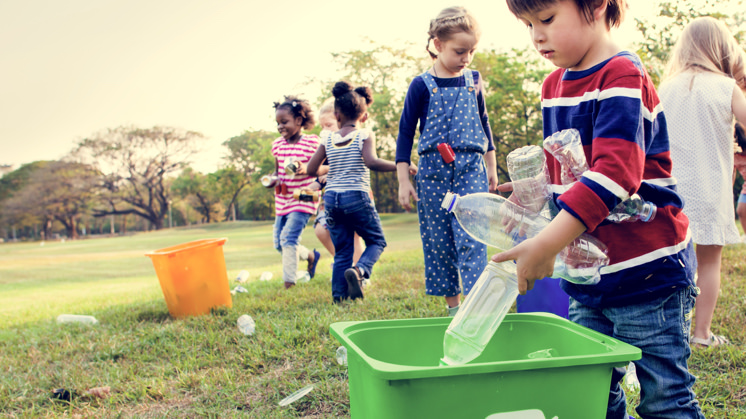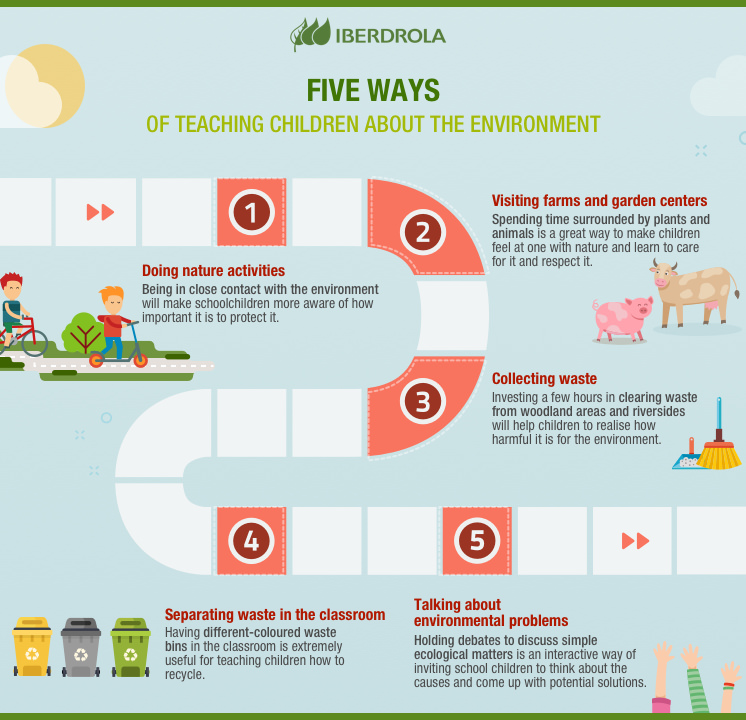Environmental education for kids
Benefits of environmental education in kids
Kids should start their environmental education at school. The fate of the planet will be in their hands, so it is crucial for them to learn how to use resources wisely and do their bit in the battle against climate change from an early age. The results of this difficult test could be a better, more sustainable and inhabitable world.

Raising environmental awareness among kids
Primary education is a crucial stage in the development of a person's behaviour, social awareness and selflessness. At school we learn values and behaviours that will stay with us throughout our adulthood and define who we are. That is what makes it so important to spark an interest in caring for and protecting the environment while children are still at school.
The aim of teaching children environmental education is for them to make caring for nature part of their lives, as opposed to just studying it. The idea behind this subject is for young people to develop a firm ecological mindset and use it to overcome today's environmental challenges with a proactive attitude and a strong commitment.
Environmental education also has other positive effects on young people. In 2017, Stanford University studied how this subject affects schoolchildren all the way from infant school to high school. After researching more than a hundred scientific studies published on the subject from 1994 to 2013 by other institutions, they concluded that 83 % of schoolchildren improved their ecological behaviour and 98 % scored better in other subjects such as maths and science.
Environmental education methods for kids
Environmental education is a process for life and should be included in every primary and secondary school's syllabus, as well as in other activities such as seminars, conferences and talks. The way it is taught in the classroom should be adapted to the age and maturity of the children and should be not only theoretical but also practical, entertaining and fun.
There are plenty of activities that can be done in the playground or in a nearby park. Children can go outdoors to learn about plants, trees, rivers, birds and insects, but also about environmental problems such as pollution, gas emissions, energy consumption, recycling, good use of water and a whole host of other important aspects.

Objectives of environmental education for kids
Including environmental education in schools is now being demanded by the United Nations Educational, Scientific and Cultural Organization (UNESCO). Irina Bokova, the Organization's Director, was keen to stress this message during the 9th World Environmental Education Congress (WEEC), which took place in the Canadian city of Vancouver in 2017.
According to UNESCO, there are four reasons to provide children with environmental education:
 To make them more aware and conscious of environmental problems.
To make them more aware and conscious of environmental problems.
 To boost their interest in caring for and improving the environment.
To boost their interest in caring for and improving the environment.
 To enhance their ability to learn about their surroundings.
To enhance their ability to learn about their surroundings.
 To broaden their ecological knowledge in subjects such as energy, landscapes, air, water, natural resources and wildlife.
To broaden their ecological knowledge in subjects such as energy, landscapes, air, water, natural resources and wildlife.
Teaching new generations is up to all of us, not just parents. Today's children will be tomorrow's governors and world leaders and they are going to have to face huge challenges — such as global warming and water stress — and make crucial decisions for all of mankind. The future is in their hands!






